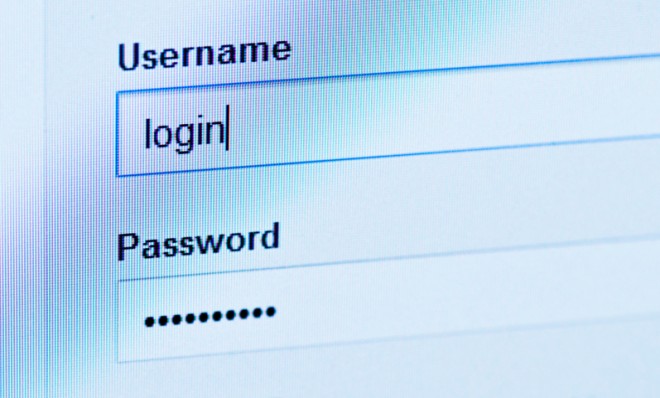Will pills and tattoos replace internet passwords?
Motorola's Regina Dugan hopes so. And as former chief of DARPA, she may know what she's talking about.


A free daily email with the biggest news stories of the day – and the best features from TheWeek.com
You are now subscribed
Your newsletter sign-up was successful
Passwords are a pain.
Your various email accounts and social media accounts and even your smartphone and laptop require them — or at least encourage them — but passwords are hardly foolproof. In fact, says Jesse Emspak at Discovery News, they're "the weakest link in the authentication chain because humans aren't great at creating passwords [or] remembering them."
Maybe our reliance on passwords is about to change. At All Things D's D11 conference last week, Regina Dugan, the head of Motorola's Advanced Technology & Projects, showcased two ways of logging into your technology that require no typing at all: Pills and tattoos.
The Week
Escape your echo chamber. Get the facts behind the news, plus analysis from multiple perspectives.

Sign up for The Week's Free Newsletters
From our morning news briefing to a weekly Good News Newsletter, get the best of The Week delivered directly to your inbox.
From our morning news briefing to a weekly Good News Newsletter, get the best of The Week delivered directly to your inbox.
Dugan showed the D11 audience a "vitamin authentication" pill that, when swallowed, makes your whole body into an authentication token, or fob, she says. "It means that my arms are like wires, my hands are like alligator clips — when I touch my phone, my computer, my door, my car, I'm authenticated in. It's my first super power. I want that."
When the pill hits your stomach, the stomach acid flips the on switch, activating an 18-bit signal. Dugan says it "would be medically safe to ingest 30 of these pills every day for the rest of your life," notes Liz Gannes at All Things D, and since Motorola is owned by Google — the company that knows you better than your spouse — she adds that "the only thing the pill exposes about its swallower is whether or not it has been taken."
From any other tech executive, this might seem like so much talk. But Dugan is the former head of the Defense Advanced Research Project Agency (DARPA) — the U.S. military's equivalent of Q's weapons and gadgets shop in the James Bond movies — and besides, vitamin authentication is past the theoretical stage. "We have demoed this working and authenticating a phone," said Motorola chief Dennis Woodside, sitting next to Dugan on stage.
The same is true of the tattoo. The pill uses technology developed by Proteus Digital Health, and has already been cleared by the FDA. The disposable tattoo — more of a skin patch, really — is based on stretchable circuits developed by a startup called MC10. Dugan, who was sporting a prototype at D11, described the week-long electronic tattoo as a variation of wearable tech, with antennas and sensors that would unlock your digital accounts when you're near. "Ten- to 20-year-olds might not want to wear a watch on their wrists," Dugan said, "but you can bet they will wear a tattoo — if only to piss off their parents."
A free daily email with the biggest news stories of the day – and the best features from TheWeek.com
Dugan says she's excited about the pills and tattoos, because "authentication is irritating" and a waste of time. The average internet user has to remember and put in a password 39 times a day, Dugan says, and that number can reach up to 100 for power users.
"But the question is, would people actually do this?" says All Things D's Gannes. "How odd would it be to swallow a pill or glue something to your arm to avoid entering a password or pulling out a key?"
That's one issue, says Max Rivlin-Nadler at Gawker. Another is that the pill won't stay in your stomach.
This could lead to some awkwardness when you return to the cubicle from a bathroom break to find your boss waiting for you to pull up the newest figures. You try to log in, but the computer says you're not authenticated. Your boss awkwardly waits as you swallow another pill, having just passed your last one. [Gawker]
It's true that "swallowing your authentication token every day would also mean passing it out of the digestive system," in the normal fashion, says Emspak at Discovery News. But not everybody takes vitamins or other pills every day, and there's no guarantee they'll want to start just to avoid using passwords. And what happens if you forget to take your pill? Still, give Dugan and her team kudos for their "attempt to think about a process that needs fixing," says Emspak. And at a minimum, this is a hardy "attempt by Motorola to think big."
Watch Dugan's talk (the pill and tattoo talk starts around the 17-minute mark):
Peter has worked as a news and culture writer and editor at The Week since the site's launch in 2008. He covers politics, world affairs, religion and cultural currents. His journalism career began as a copy editor at a financial newswire and has included editorial positions at The New York Times Magazine, Facts on File, and Oregon State University.
